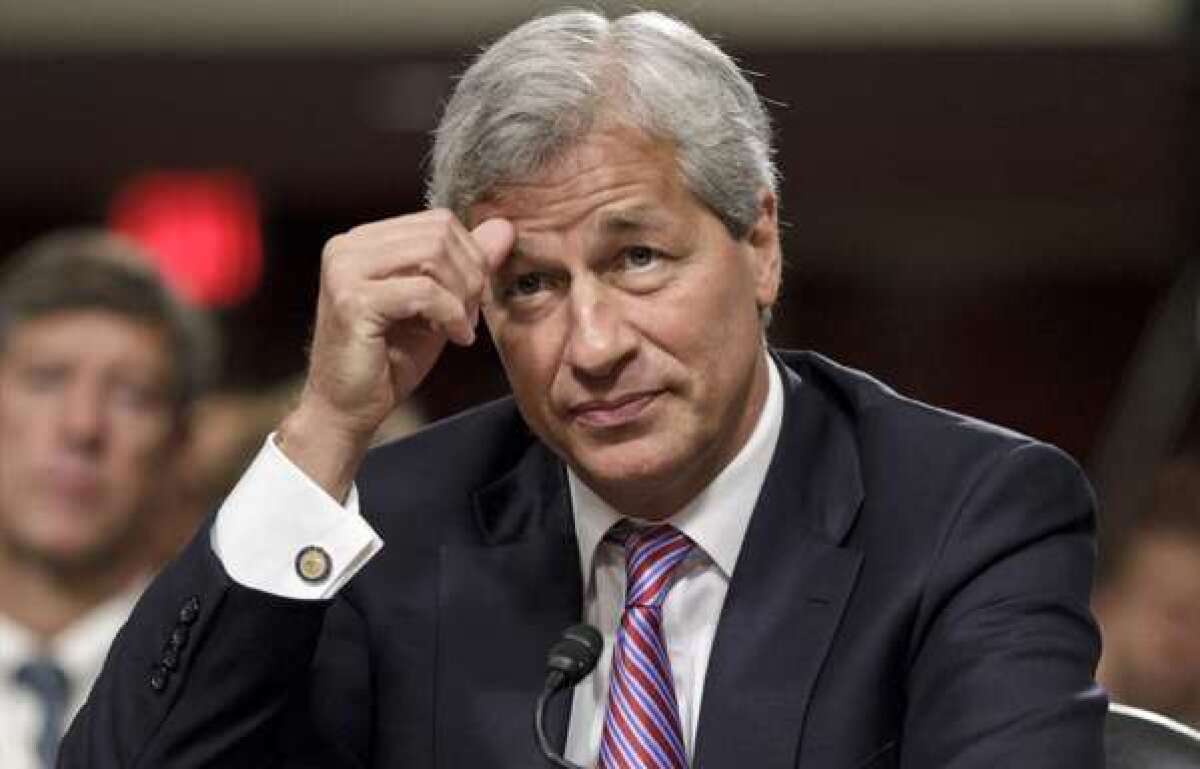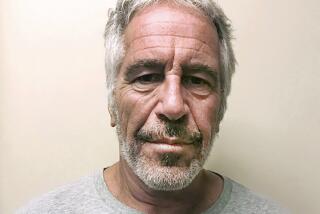The key piece of the JPMorgan settlement isn’t the record fine

Has Jamie Dimon dodged another bullet at JPMorgan?
- Share via
Yes, $13 billion in penalties--the figure at the center of the JPMorgan mortgage settlement deal being reported Saturday--is eye opening. Yes, it’s a record in a civil proceeding against a major corporation.
But the most significant thing about JPMorgan’s deal with the Department of Justice may be what it doesn’t do. It doesn’t resolve the ongoing federal criminal investigations of the bank’s conduct in the residential mortgage securities business during the run-up to the 2008 financial crisis. That investigation is being handled by federal prosecutors in Sacramento.
The money penalty may sound big, and a series of earlier big settlements produced the firm’s first quarterly loss since Jamie Dimon took over as CEO at the end of 2006. (He became chairman a year later.) But to an enterprise the size of JPMorgan it’s still chump change. The people who pay it are not the executives who managed the bank to this pass, but the shareholders. Until the responsible executives are held personally accountable--including Dimon--no financial penalty will have a deterrent effect.
Personal accountability may still be in the cards. Reports say that Dimon directly lobbied U.S. Atty. Gen. Eric Holder to drop the criminal investigation, but Holder turned him down. That’s gratifying, because banks don’t hurt people--bankers do. It’s still highly unlikely that the criminal investigation will hit Dimon, but it will be interesting to see how far up the Morgan chain it goes.
The settlement ends the government’s civil allegations that JPMorgan and its subsidiaries misled investors, including the government-sponsored mortgage companies Fannie Mae and Freddie Mac, about the real value of the mortgage securities it was selling. One defense of Dimon and JPMorgan you’ll hear from their mouthpieces is that most of these securities were produced before 2008 by Bear Stearns and Washington Mutual. That’s the date when Morgan acquired those firms at the government’s behest in an effort to save the financial system from ruin.
That’s true but misleading. JPMorgan itself acknowledges that Bear Stearns and WaMu accounted for 80% of the suspect securities; some analysts say the correct figure is 70%. That still leaves JPMorgan with billions and billions and billions of dollars worth of responsibility.
As for Dimon, his jobs at JPMorgan still look secure. That’s a reproach to the ethics of American business’ ruling class, and to the integrity of a JPMorgan board that leaves him in place despite many billions of legal and regulatory penalties for his bank’s unethical behavior. It’s sad when the quality a top executive is most admired for is his ability to deflect personal blame, and stick the shareholders with the bill.
More to Read
Inside the business of entertainment
The Wide Shot brings you news, analysis and insights on everything from streaming wars to production — and what it all means for the future.
You may occasionally receive promotional content from the Los Angeles Times.











